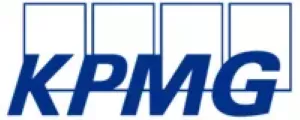While the increased competition, maturing ecosystem and ever-shifting regulatory landscape are all undoubtedly creating challenges in the iGaming market, industry leaders acknowledge the importance of having a long term rolling strategy to remain ahead of the curve. Vanessa Borg kickstarted the C-Suite panel discussion stressing on having an agile strategy which is not an opening act to a budget, but a 'live' framework enabling an organisation to leverage on its resources. This was reinforced by Jesper Svensson who added "Although things are changing, there's still growth. If you are faster than your competitors to change, you have a great opportunity to grow more than your competitors".
Richard Carter said many of the supplier's customers were taking a similar view. "With the maturing ecosystem we're seeing in Europe, a lot of operators are looking to expand outside of Europe.
On this front, Cormac O'Brien said he saw speed to market as the main determinant of success. "How fast you can have what I would call your 'black ops' team fly in and get into new markets as quickly as possible is key to growth."
All eyes on US
In relation to the potential merger between Flutter and The Stars Group – which unsurprisingly drew a lot of interest from the audience – he cited the US as a key attraction.
"What's already been announced is some cost savings from synergies, but the main bit, the exciting bit, is the growth in the market."
"America is obviously a big, key player for all of us. One state opening up there is equivalent to a massive country over here in Europe. So it's really positive and that's where I'd see the growth in the short to medium term in any of the larger players."
Carter agreed. "I think it'll have a very profound impact, both on a B2B level and also a B2C level."
However, he added that there could also be some negative consequences flowing from developments in the US. "I hope I'm not right about this, but I think if you look at what's happened with the NBA and the NFL in the US, where they're asking for contributions from the operators to be able to place bets on those sports, I wouldn't be surprised if associations outside of the US, in Europe and globally, start to see how they can take a bit more of their pound of flesh from the industry to allow people to bet on their sports."
He added that he thought the US would provide an additional catalyst for further M&A in the industry.
Svensson pointed out that acquisitions, in particular, were popular with operators as they sometimes proved the fastest way to enter new markets. "That's something we have done in various cases in order to get a foothold somewhere.
"In an ideal world, of course, you can do it all yourself, because you have the technology teams and the infrastructure set up for that, but that's not always the case and then an acquisition to enter a market can be a very good route."
Even aside from a desire to enter new markets, panellists expected other factors, such as compliance, to drive the market to become even more consolidated. Nigel Birrell said he thought the industry would "polarise into several very large companies".
Carter agreed: "The bigger companies in the industry are merging and getting bigger, and I think that trend is going to continue."
Looking internally
While acknowledging the macro forces reshaping the industry, Jean-Luc Ferriere said it was important companies also remained focused on the micro in order to grow.
"For us that's really the key element, to focus our business around the most important things to us and sometimes actually not be distracted by a lot of the other things that are going on in the marketplace."
He said one of the big areas of interest for him was developing the company's use of data. "What I'm really excited about is the data and the growth of the use of data science and predictive modelling for all areas of our business, from product design through to responsible gaming.
"We've got decades' worth of information that we can mine and use for all sorts of purposes. For me the cloud-based services, the power of predictive modelling and machine learning are really exciting."
At Lottoland, Birrell said one main area of focus was its affiliate network, which has become increasingly important to the business. "Probably about 30% of our new signups now are coming through affiliates, but it was probably only 20% a year and a half ago.
"The KPIs for our team are very much growing our affiliate network. Whether they're small or large, we don't mind, we're trying to bring them in. But it's all about educating them as well in the way we want them to perform."
Though it's clear there are a number of headwinds facing the industry, it's also clear that operators are optimistic there is still potential for further growth if the right strategy is adopted.
The content of this article is intended to provide a general guide to the subject matter. Specialist advice should be sought about your specific circumstances.

